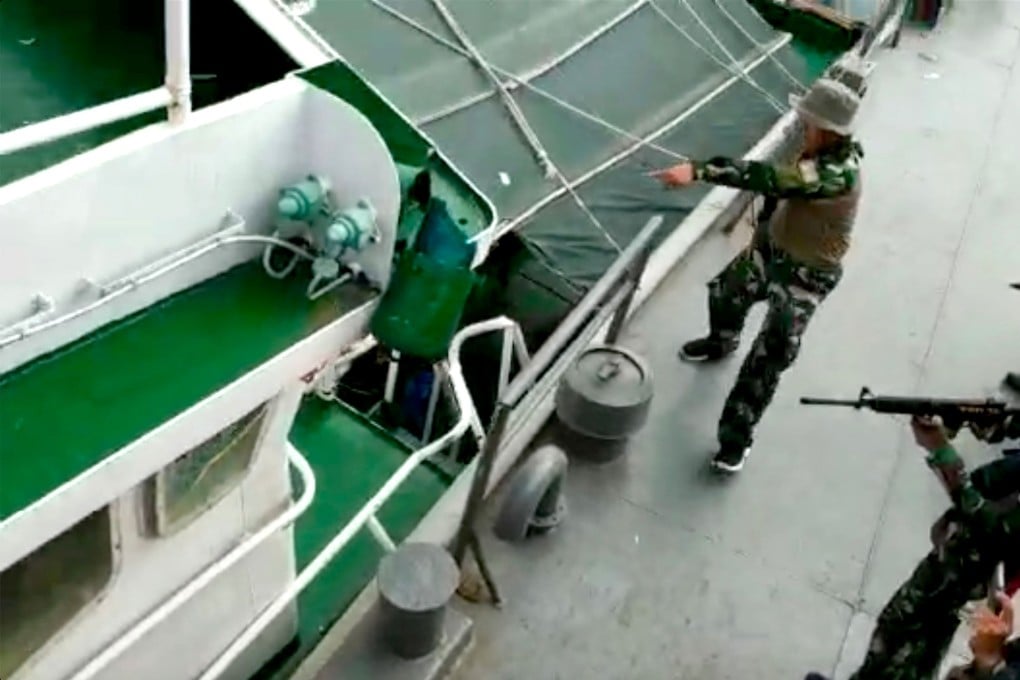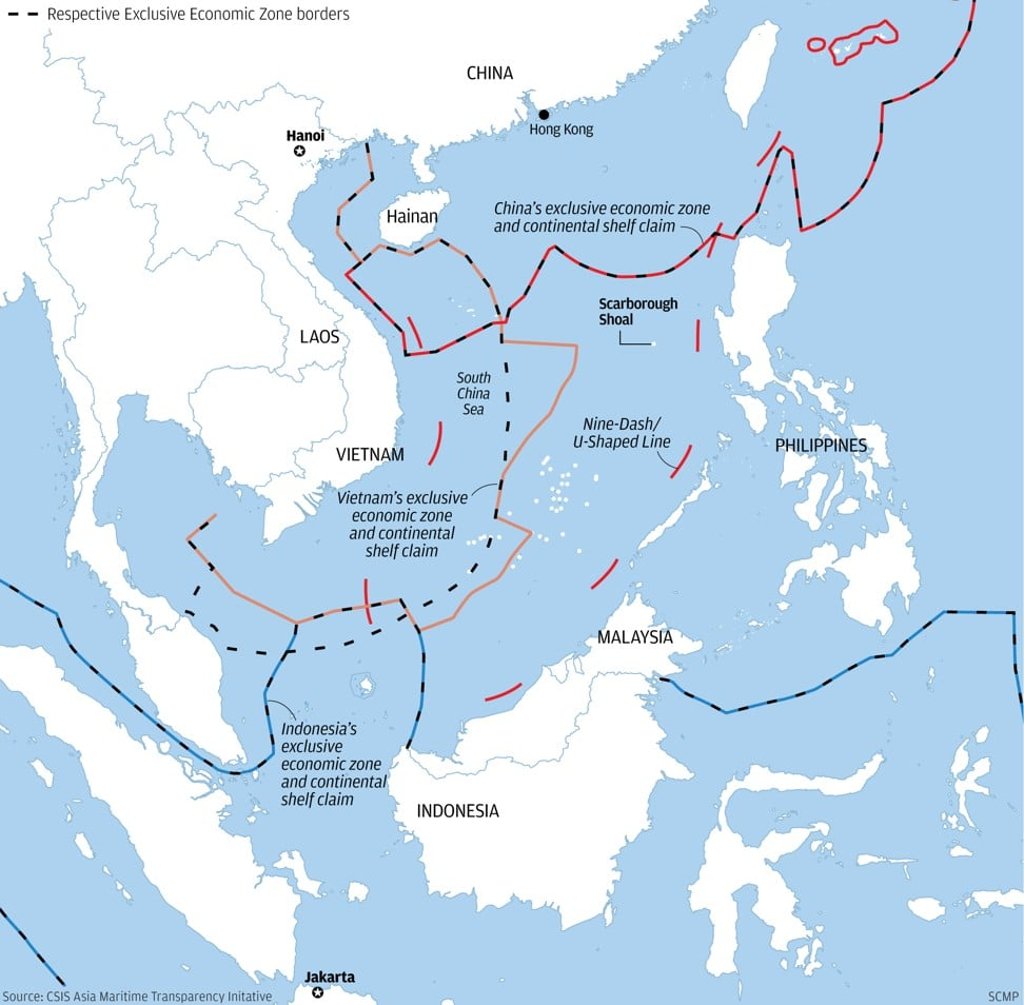Advertisement
Sinking captured fishing boats is deterrent, not retaliation, Indonesia says after South China Sea clash with Vietnam
- Fisheries minister Susi Pudjiastuti says move is continuation of long-standing policy laid out by President Joko Widodo
- On Monday Indonesia accused a Vietnamese coastguard patrol boat of ramming into one of its navy vessels
Reading Time:3 minutes
Why you can trust SCMP

When Indonesia begins sinking 51 captured fishing vessels – mostly from Vietnam – this Saturday, it will not be punishment for the recent clash at sea between the countries, but a continuation of its policy to deter illegal fishing, according to fisheries minister Susi Pudjiastuti.
On Monday, Indonesia accused a Vietnamese coastguard patrol boat of ramming into one of its navy vessels at the southern edge of the South China Sea, which it considers its exclusive economic zone. The Indonesian navy was trying to stop a Vietnamese fishing boat from entering the area, as Jakarta says it has the sole right to exploit resources there.
Twelve of the 14 fishermen were apprehended and the boat sank, the authorities said, leading Vietnam’s foreign ministry to demand their return as well as compensation for the sunken vessel.
Advertisement
Susi, a straight-talking minister who has authorised the seizure, sinking and blowing up of hundreds of vessels from different countries for fishing illegally in Indonesia’s waters, said 38 of the boats to be sunk starting on Saturday had Vietnamese flags.
Advertisement
The rest were from Malaysia, China and the Philippines or registered to Indonesian companies in a bid to disguise their true origins.
Advertisement
Select Voice
Choose your listening speed
Get through articles 2x faster
1.25x
250 WPM
Slow
Average
Fast
1.25x
